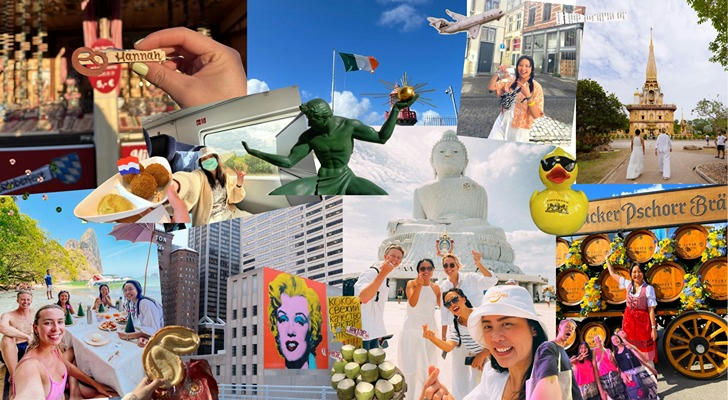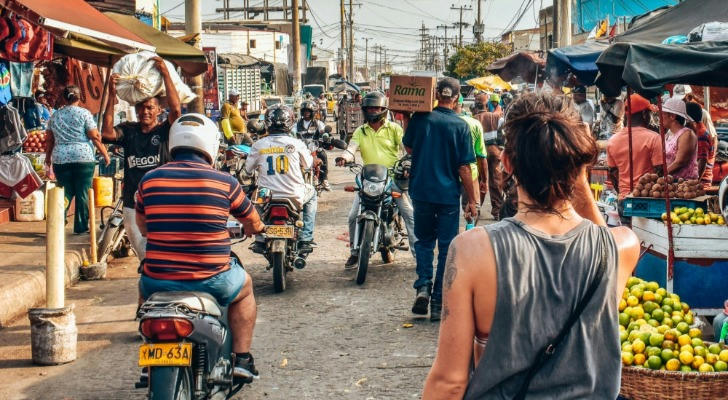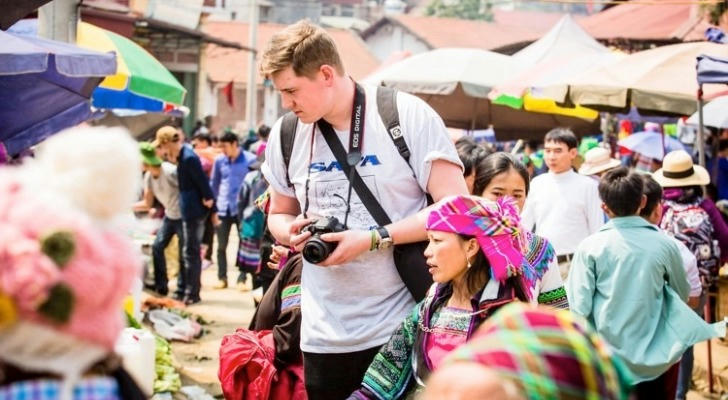How to experience cultural travel in depth?

In this era of rapid globalization, cultural travel is not only a way of traveling, but also a profound experience and journey of discovery. Instead of simply pursuing places of interest, it is better to integrate the cultural context into the travel and deeply understand the history, customs and lifestyle of a region. Cultural travel not only allows us to travel in different landscapes, but also allows us to walk into different souls and feel the unique cultural atmosphere. Every trip is an opportunity to have a deep dialogue with culture and a process of close contact with history and people.
What benefits can cultural travel bring us?

1. Enhance cross-cultural understanding
Experience different cultures: By personally experiencing the cultural customs, traditional festivals and daily life of different countries or regions, you can better understand and respect the uniqueness and values of other cultures.
Break stereotypes: Interacting with local residents can break stereotypes and prejudices about them and promote more authentic cultural cognition.
2. Improve language skills
Language immersion: Learning and using foreign languages in a real language environment helps improve language skills, increase oral fluency and listening comprehension.
Learn authentic expressions: By communicating with locals, you can learn more authentic vocabulary and expressions, and improve your ability to use the language in practice.
3. Broaden your horizons and thinking
Appreciate diverse art: Visiting different museums, art galleries and historical sites, you can appreciate a variety of art styles and historical relics, stimulate creativity and artistic inspiration.
Feel the difference in lifestyles: Experiencing different lifestyles and values can prompt us to re-examine our own lifestyles and ways of thinking and broaden our horizons.
4. Enhance historical and humanistic literacy
Learn historical background: Visiting historical sites and museums can provide in-depth understanding of historical events, figures and social development in different regions, and enhance historical knowledge.
Understand humanistic traditions: Understanding local customs, religious beliefs and social systems can help improve awareness and understanding of the evolution of human civilization.
5. Promote personal growth
Cultivate adaptability: Traveling in an unfamiliar environment requires coping with various challenges and changes, which helps improve adaptability and problem-solving skills.
Enhance self-confidence: Successfully overcoming difficulties and challenges during travel can enhance self-confidence and independence, and enhance personal growth and maturity.
6. Promote social interaction and build connections
Meet new friends: Communicate with locals and other tourists during travel, you can meet new friends from different backgrounds and expand your social circle.
Enhance cultural exchanges: By communicating with people from different cultural backgrounds, you can promote cross-cultural understanding and cooperation and enhance your global vision.
7. Enjoy physical and mental relaxation and mental health
Relieve stress: Cultural travel is often accompanied by beautiful scenery and a relaxing atmosphere, which helps to reduce stress in daily life and improve mental health.
Improve happiness: The novelty and satisfaction brought by exploring new cultures and new attractions can enhance personal happiness and life satisfaction.
Through cultural travel, we can not only gain a pleasant travel experience, but also improve our knowledge, ability and psychology in an all-round way.
During his visit to India on June 24, 2023, a tourist from the UK entered a temple wearing shorts and a sleeveless top, talked loudly and laughed in the temple, and took photos. The tourist was subsequently asked to leave the temple, and the local media reported the incident. This incident not only embarrassed the tourist, but also led to unnecessary negative impressions of Indian culture.
What should we pay attention to in order to avoid the above situation or worse during cultural travel?

1. Respect local customs and etiquette
Before departure, research the cultural norms of the destination. Dress appropriately and follow local social etiquette and religious customs, such as keeping quiet and taking off shoes in religious places. This respect will allow you to avoid unnecessary misunderstandings or conflicts, while also showing your sincere respect for local culture.
2. Keep an open mind
When experiencing different cultures, be curious and inclusive. Abandon stereotypes and actively try local food, customs and activities to more fully understand and appreciate the uniqueness of other cultures.
3. Respect personal privacy
When interacting with locals, especially when taking pictures, pay attention to their privacy rights. Some places have strict regulations on photography. Ask in advance if you can take pictures, as well as respect personal space and the feeling of not wanting to be disturbed.
4. Protect the environment
Try to minimize the impact on the environment when traveling. Follow the rules of garbage sorting, save water and electricity, respect natural landscapes, don't leave any garbage, and ensure that the places you visit maintain their natural beauty and ecological balance.
5. Support the local economy
Choose to spend money in local shops, restaurants and accommodation facilities instead of relying on large international chains. This will not only allow you to experience more local characteristics, but also directly support the local economy.
6. Avoid overspending and disrespectful behavior
Try not to waste local resources, respect the way of life of local people, and avoid offensive behavior or remarks, such as being loud in public or disrespecting local customs.
7. Learn basic local language and phrases
Even if you only master simple greetings and thank you words, you can significantly improve the quality of your interaction with local people. Show your respect for their culture, and also make it easier for you to get help and information.
8. Understand and follow laws and regulations
Before traveling, learn the laws and regulations of your destination, such as no-smoking areas or special traffic rules. Following these regulations can avoid unnecessary legal troubles and make your trip smoother.
9. Stay safety-conscious
Learn about the safety conditions of your destination in advance, follow travel safety guidelines, and stay alert to ensure the safety of yourself and your belongings. For example, avoid walking alone in unfamiliar places, especially at night.

In short, in-depth cultural travel is not only about exploring the scenery, but also about respecting and understanding the culture. By respecting local customs, keeping an open mind, supporting the local economy, learning basic languages, and understanding and abiding by laws and regulations, you can have a more authentic and meaningful experience during your travels. These efforts will not only make you a more responsible traveler, but also build a deep connection between you and the local community. Let us explore the world with this respect and curiosity, and make every trip an opportunity to enhance cultural understanding and friendship.
